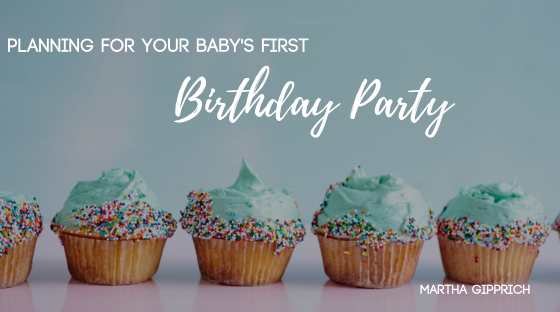Congratulations! You have officially made it through your very first year as a parent. It’s time to celebrate the achievements that your little one (and you as a parent) have made in the past year. Keep in mind that your baby’s first birthday party does not need to be perfect or elaborate to be fun! Keeping these tips in mind when your are planning your child’s first birthday party will help ease your stress and create a great day full of wonderful memories.
Keep Your Guest List Small
Although you may want all your friends and family to join you in the celebration of your baby’s first year, consider keeping your party small and simple. Limiting the birthday to just close family helps create a more intimate setting and helps your baby from feeling overwhelmed. Inviting more than 10 people requires more planning and added stress.
Work Around Your Baby’s Sleep Schedule
You may find that the only time free time you get is when your child is sleeping. Although your sleeping baby allows you to socialize with other adults, the same can’t be said for other infants and toddlers that are invited. Instead of working around other’s nap schedules, aim for a party that is in the morning or early afternoon instead of the evening. Planning your party early enough will ensure that your baby is wide awake for the fun.
Don’t Stress Yourself Out
As a new parent, don’t give yourself more work than what you need to. Whether you are returning back to work or trying to get your baby used to a new routine, make sure you give yourself enough time to get used to any change. Party planning and decorating can wait for a few weeks as you and your child transition into new routines.
Be Mindful of Other Little Ones
If you have a few infants and toddlers on your invite list, set out some baby-approved snacks along with your adult-friendly options. You may also want to consider creating a makeshift diaper changing station, so multiple parents can change their children if need be. If you haven’t had to baby-proof every nook and cranny of your house, you may want to take the time to do so. Other children may be more prone to getting in sticky situations, so you will want to do your best to be prepared.
Take Pictures Before the Party Starts
While you are hosting the party, you may get too wrapped up in the swing of things and forget to take pictures. Before chaos erupts, take moment to take a snapshot of your baby, you’ll be thankful you did!
This blog was originally posted on MarthaGipprich.net



